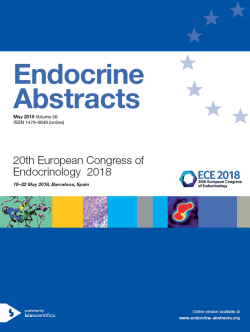Searchable abstracts of presentations at key conferences in endocrinology

20th European Congress of Endocrinology
Barcelona,
Spain
19 May 2018 - 22 May 2018
ECE 2018, 19 - 22 May 2018; Barcelona, Spain



